Free Guide: 10 Natural Remedies for Gut Health

A staggering 70 million Americans suffer from digestive diseases, with gut health emerging as a critical factor in overall wellness.
The intricate balance of gut flora plays a vital role in our immune system, mental health, and even skin clarity. Fortunately, there are numerous holistic approaches that can help restore balance to your gut.
Discover the top 10 gut health remedies that can transform your overall health and wellbeing.
Key Takeaways
- Understand the importance of gut health in overall wellness
- Learn about 10 holistic approaches to improve gut wellness
- Discover simple, effective ways to restore balance to your gut flora
- Improve your immune system and mental health through gut health
- Explore the connection between gut health and skin clarity
Why Gut Health Is Essential for Overall Wellness
Maintaining good gut health is fundamental to ensuring our overall health and well-being. A balanced gut microbiome is crucial for optimal digestion, absorption of nutrients, and elimination. It also plays a significant role in supporting a healthy inflammatory response and keeping our immune system strong.
The Gut Microbiome Explained
The gut microbiome consists of trillions of microorganisms living in our gastrointestinal tract. These microbes work together to maintain a delicate balance that is essential for our overall health. A healthy gut microbiome is characterized by a diverse range of beneficial bacteria that help in digesting food, producing vitamins, and regulating the immune system.
Key functions of a healthy gut microbiome include:
- Breaking down complex foods and absorbing nutrients
- Producing certain vitamins, such as vitamin K and biotin
- Regulating the immune system and preventing overactive or underactive immune responses
- Producing hormones that influence mood and appetite
Signs Your Gut Health Needs Attention
Poor gut health can manifest in various ways, making it essential to recognize the signs early. Some common indicators include:
Digestive issues: Bloating, gas, constipation, diarrhea, or abdominal pain can signal an imbalance in the gut microbiome.
Skin problems: Acne, eczema, or other skin conditions can be linked to gut health.
Mood disorders: Anxiety, depression, or mood swings may be related to an unhealthy gut-brain axis.
If you’re experiencing any of these symptoms, it may be a sign that your gut health needs attention. By understanding the importance of gut health and recognizing the signs of imbalance, you can take the first steps towards achieving overall wellness.
The Gut-Brain Connection: How Digestion Affects Your Mood
The connection between the gut and the brain is a complex one, influencing our mood in profound ways. This intricate relationship is facilitated by the gut-brain axis, a bidirectional communication network that links the enteric nervous system of the gut to the central nervous system.
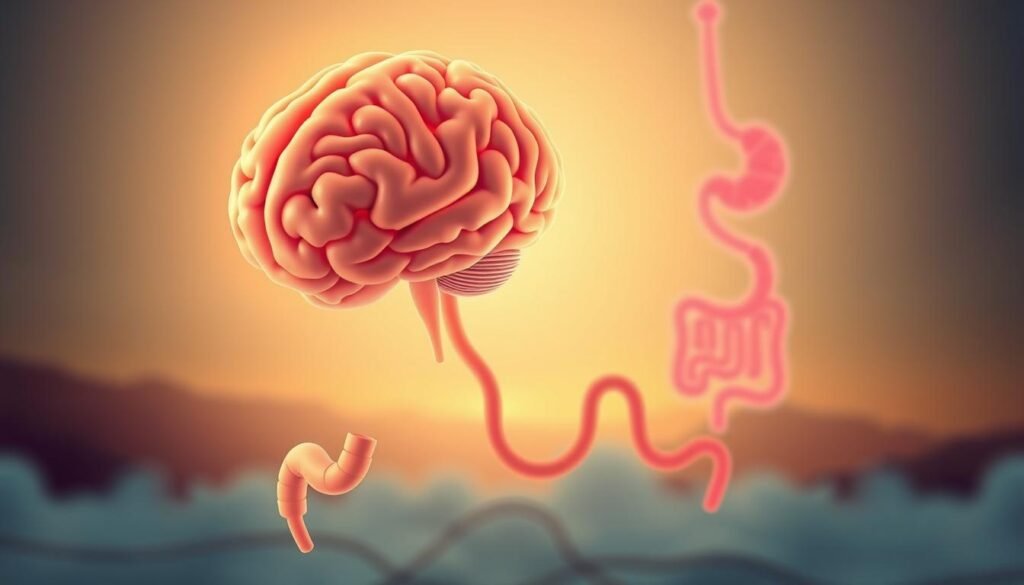
Understanding the Gut-Brain Axis
The gut-brain axis enables the exchange of information between the gut and the brain, influencing various physiological processes. This communication is crucial for maintaining homeostasis and overall well-being. The gut microbiome plays a significant role in this axis, producing neurotransmitters and hormones that affect mood and cognitive functions.
The significance of the gut-brain axis lies in its ability to influence our mental state. Research has shown that alterations in the gut microbiota are associated with various mental health disorders, including anxiety and depression.
Serotonin Production in the Gut
A significant portion of the body’s serotonin, a neurotransmitter that regulates mood, is produced in the gut. The gut’s serotonin production is influenced by the gut microbiome, highlighting the importance of a balanced gut microbiota for mental wellness. Serotonin imbalance has been linked to various mental health conditions, making the gut a critical area of focus for mental health support.
How Improving Gut Health Can Boost Mental Wellness
Improving gut health through dietary changes, probiotics, and other interventions can have a positive impact on mental wellness. By supporting the gut microbiome, individuals can potentially alleviate symptoms of anxiety and depression. A holistic approach to gut health, including diet, lifestyle, and stress management, is essential for maintaining a healthy gut-brain axis.
By understanding the gut-brain connection and taking steps to support gut health, individuals can take a proactive approach to maintaining their mental wellness. This involves not just dietary changes but also managing stress and adopting a healthy lifestyle.
Common Causes of Poor Gut Health in Modern Life
Modern life is riddled with factors that contribute to poor gut health. Our daily habits and choices can significantly impact the balance of our gut microbiome, leading to various health issues.
The Standard American Diet Impact
The Standard American Diet Impact
The typical Western diet is high in processed foods, sugars, and unhealthy fats, which can disrupt the balance of gut bacteria. Consuming a diet rich in refined carbohydrates and processed meats can lead to an overgrowth of pathogenic bacteria, contributing to poor gut health.
As Dr. Emeran Mayer notes in his book “The Gut-Immune Connection,” “The food we eat has a profound impact on the composition of our gut microbiome.” A diet lacking in fiber and essential nutrients can impair the gut’s barrier function, making it more permeable and leading to inflammation.
Stress and Cortisol Effects
Chronic stress is another significant factor that can negatively impact gut health. When we experience stress, our body releases cortisol, a hormone that prepares our body for the “fight or flight” response. Elevated cortisol levels can alter the gut microbiome, reducing the diversity of beneficial bacteria.
Research has shown that stress can impair the gut’s barrier function, leading to increased permeability and inflammation. As
“Stress is not just a mental state; it has a tangible impact on our physical health, particularly our gut health.”
This highlights the importance of managing stress for overall well-being.
Medications That Disrupt Gut Flora
Certain medications, such as antibiotics, proton pump inhibitors (PPIs), and nonsteroidal anti-inflammatory drugs (NSAIDs), can also disrupt the balance of gut bacteria. Antibiotics, while designed to target harmful bacteria, can also eliminate beneficial bacteria, leading to an imbalance in the gut microbiome.
It’s essential to be aware of the potential side effects of medications on gut health and to discuss alternatives with healthcare providers when possible. By understanding the common causes of poor gut health, individuals can take proactive steps to mitigate these factors and promote a healthier gut.
Natural Remedies for Gut Health: The Science-Backed Approach
The quest for optimal gut health has led to a surge in interest in natural remedies that are backed by scientific evidence. As we continue to uncover the intricate relationships between our gut microbiome, overall health, and wellbeing, the importance of evidence-based natural solutions becomes increasingly clear.
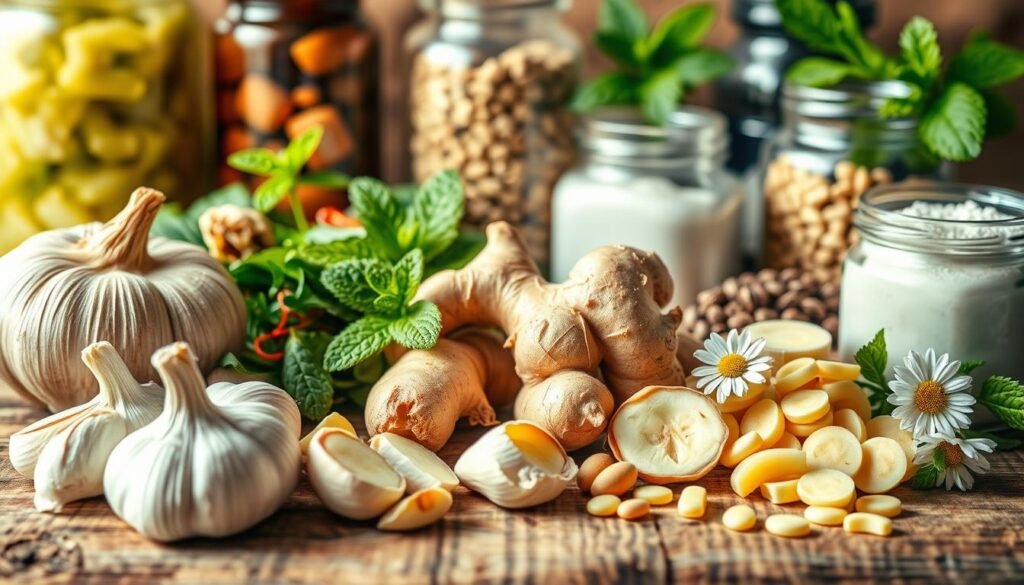
Why Natural Solutions Are Effective
Natural remedies for gut health are effective because they work in harmony with the body’s own processes. Unlike some pharmaceutical interventions that can have harsh side effects, natural solutions like probiotics and prebiotics support the gut microbiome by enhancing its natural balance. This approach not only addresses immediate symptoms but also contributes to long-term gut health.
Probiotics, for instance, introduce beneficial bacteria into the gut, promoting a healthy microbial environment. Prebiotics, on the other hand, provide the necessary nutrients for these beneficial bacteria to thrive. Together, they form a synergistic relationship that significantly enhances gut health.
How These Remedies Work Synergistically
The effectiveness of natural remedies for gut health lies in their ability to work synergistically. When combined, different natural remedies can enhance each other’s benefits, leading to a more comprehensive approach to gut health. For example, combining probiotics with prebiotic fiber can significantly improve the colonization and activity of beneficial bacteria in the gut.
- Probiotics and prebiotics work together to enhance microbial balance.
- Anti-inflammatory herbs like turmeric and ginger can soothe the digestive tract.
- Digestive enzymes and bitters can optimize digestion and nutrient absorption.
Setting Realistic Expectations for Healing
While natural remedies offer a promising path to improved gut health, it’s essential to set realistic expectations. Healing the gut is a gradual process that requires patience, consistency, and a comprehensive approach. It’s not just about taking a supplement or making a single dietary change; it’s about adopting a holistic lifestyle that supports gut health.
By understanding how natural remedies work and setting realistic goals, individuals can embark on a successful journey towards optimal gut health. This journey involves not just the use of natural remedies but also dietary changes, stress management, and other lifestyle adjustments that collectively contribute to a healthier gut microbiome.
Remedy #1: Probiotic-Rich Foods for Microbial Balance
Probiotics, found in fermented foods, play a crucial role in maintaining gut health. These beneficial bacteria help populate your gut with healthy microbes, supporting digestion and overall wellness.
The Science Behind Beneficial Bacteria
Beneficial bacteria in probiotic-rich foods work by colonizing the gut with healthy microbes. This process helps crowd out pathogenic bacteria, supporting a balanced gut microbiome. Research has shown that a diverse gut microbiome is essential for optimal health, influencing everything from digestion to mood.
Key benefits of probiotics include:
- Improved digestion and reduced symptoms of IBS
- Enhanced immune system function
- Production of vitamins, such as vitamin K
- Support for the gut-brain axis, potentially improving mental health
Top Fermented Foods to Include Daily
Incorporating fermented foods into your diet is an effective way to boost your probiotic intake. Some of the top fermented foods include:
- Sauerkraut: Finely shredded cabbage fermented in its own juice, rich in vitamins and minerals.
- Kimchi: A Korean staple made from fermented vegetables, usually cabbage or radishes, seasoned with chili peppers and garlic.
- Kefir: A fermented milk product that contains a variety of beneficial bacteria and yeast.
- Miso: A fermented soybean paste used in soups and sauces.
- Yogurt: Contains live cultures of beneficial bacteria, though it’s essential to choose varieties with minimal added sugars.
DIY Fermentation: Getting Started at Home
Starting your own fermentation journey at home is easier than you think. Begin with simple recipes like sauerkraut or kefir. You’ll need basic ingredients, such as cabbage or milk, and some equipment, like a jar or fermentation vessel.
Tips for successful DIY fermentation:
- Use fresh, organic ingredients for the best flavor and nutritional benefits.
- Keep your fermentation area clean to avoid contamination.
- Monitor the fermentation process, tasting regularly to achieve your desired level of sourness or flavor.
- Store your fermented foods in the refrigerator to slow down the fermentation process.
Remedy #2: Prebiotic Fiber to Feed Your Good Bacteria
Feeding your good bacteria with prebiotic fiber can significantly enhance your overall gut health. Prebiotic fiber acts as a food source for the beneficial bacteria in your gut, helping them thrive and maintain a balanced microbiome.
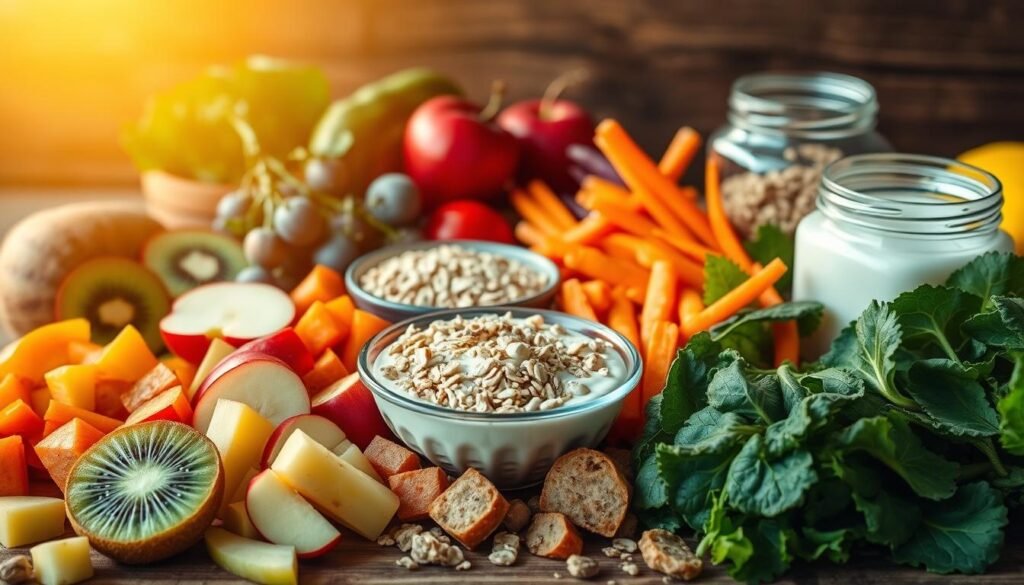
The Crucial Difference Between Prebiotics and Probiotics
While often mentioned together, prebiotics and probiotics serve distinct roles in gut health. Probiotics are live, beneficial bacteria that directly contribute to a healthy gut microbiome. In contrast, prebiotics are non-digestible fibers that serve as a food source for these beneficial bacteria, helping them grow and flourish.
“Prebiotics are like fertilizer for the good bacteria in your gut,” explains Dr. [Last Name], a renowned gastroenterologist. “By consuming prebiotic-rich foods, you’re creating an environment where beneficial bacteria can thrive.”
Best Food Sources of Prebiotic Fiber
Incorporating prebiotic-rich foods into your diet is easier than you might think. Some of the best sources include:
- Asparagus
- Bananas
- Onions
- Garlic
- Whole wheat bread
- Oats
- Barley
- Apples
These foods are not only rich in prebiotic fiber but also provide essential vitamins and minerals, making them a nutritious addition to your meals.
Creating Prebiotic-Rich Meals and Snacks
Crafting prebiotic-rich meals can be both delicious and straightforward. Start your day with oatmeal topped with sliced bananas and a sprinkle of cinnamon. For snacks, consider apple slices with almond butter or a handful of raw garlic-infused nuts.
For dinner, incorporate roasted asparagus or sautéed onions into your main dishes. The key is to mix a variety of prebiotic-rich foods into your daily meals to ensure you’re getting a broad range of prebiotic fibers.
By understanding and leveraging the power of prebiotic fiber, you can take a significant step towards improving your gut health and overall well-being.
Remedy #3: Anti-Inflammatory Herbs and Spices for Gut Healing
Anti-inflammatory herbs and spices are not just flavor enhancers; they’re also potent gut healers. For centuries, various cultures have used these natural ingredients to soothe digestive issues and promote overall gut health. The science behind their effectiveness is now being recognized, making them a valuable addition to any gut healing protocol.
Turmeric: The Golden Gut Healer
Turmeric, with its active compound curcumin, is renowned for its anti-inflammatory properties. Curcumin has been shown to reduce inflammation in the gut, improve symptoms of irritable bowel syndrome (IBS), and even help in healing leaky gut syndrome. Incorporating turmeric into your diet can be as simple as adding it to your meals or consuming it as a supplement.
“Turmeric contains a compound called curcumin, which has potent anti-inflammatory and antioxidant properties.”
Ginger’s Digestive Soothing Properties
Ginger has been used for centuries to aid digestion and reduce nausea. Its anti-inflammatory properties help in soothing the gut lining, reducing inflammation, and improving digestive function. Ginger can be consumed fresh, dried, or as a tea, making it a versatile addition to your gut healing regimen.
Other Powerful Anti-Inflammatory Herbs
Beyond turmeric and ginger, there are several other anti-inflammatory herbs that can support gut health. These include:
- Cinnamon, which can help reduce inflammation and improve blood sugar control.
- Cloves, known for their antioxidant properties and ability to reduce gut inflammation.
- Rosemary, which contains compounds that may help reduce inflammation and improve digestion.
Incorporating these herbs and spices into your diet can be a flavorful way to support your gut health. Whether through cooking, teas, or supplements, the benefits of anti-inflammatory herbs and spices are undeniable.
Remedy #4: Bone Broth and Collagen for Gut Lining Repair
Collagen-rich bone broth is a natural remedy that has gained popularity for its gut-healing properties. This traditional food has been consumed for centuries, and its benefits for gut health are now being backed by science.
How Collagen Supports Intestinal Integrity
Collagen is a crucial protein that provides structure to the gut lining. When the gut lining is damaged, it can lead to leaky gut syndrome, allowing toxins and undigested food particles to pass through the gut wall and into the bloodstream. Consuming collagen-rich foods like bone broth can help repair and strengthen the gut lining.
Benefits of Collagen for Gut Health:
- Reduces inflammation in the gut
- Improves gut motility
- Enhances the integrity of the gut lining
A study published in the Journal of Agricultural and Food Chemistry found that collagen hydrolysate supplementation improved gut health in mice by reducing inflammation and improving the gut barrier function.
Making Nutrient-Dense Bone Broth at Home
Making bone broth at home is a simple process that requires just a few ingredients. Here’s a basic recipe:
“To make a nutrient-dense bone broth, you’ll need bones (beef, chicken, or fish), vegetables (carrots, celery, onions), and aromatics (garlic, bay leaves). Simply roast the bones in the oven, then simmer them in water with the vegetables and aromatics for 24-48 hours.”
| Ingredient | Quantity |
|---|---|
| Bones | 2-3 lbs |
| Vegetables | 2-3 carrots, 2 stalks celery, 1 onion |
| Aromatics | 2 cloves garlic, 2 bay leaves |
Plant-Based Alternatives for Gut Lining Support
For those who follow a plant-based diet, there are still options available to support gut lining health. Some plant-based alternatives include:
- Slippery elm
- Marshmallow root
- Aloe vera

These alternatives can provide soothing and protective benefits to the gut lining, although they may not offer the same level of collagen as bone broth.
Remedy #5: Digestive Enzymes and Bitters to Optimize Digestion
Digestive enzymes and bitters are two natural remedies that can significantly enhance digestive health. By incorporating these into your daily routine, you can optimize your digestion and promote overall gut well-being.
Natural Enzyme-Rich Foods
Digestive enzymes are naturally produced in the body, but they can also be obtained through certain foods. Including enzyme-rich foods in your diet can help support your digestive system.
- Pineapple: Contains bromelain, which aids in protein digestion.
- Papaya: Rich in papain, helping to break down proteins.
- Mangoes: Contain amylase, lipase, and protease, aiding in carbohydrate, fat, and protein digestion.
- Avocados: Rich in lipase, helping with fat digestion.
These foods not only provide essential nutrients but also support the body’s natural digestive processes.
The Ancient Wisdom of Bitter Foods
Bitter foods have been used for centuries to stimulate digestion. The bitterness triggers a response in the digestive system, enhancing the release of digestive enzymes and improving gut motility.
“The bitter taste is a signal to the body that it’s time to prepare for food, stimulating digestive processes.”
Some examples of bitter foods include:
- Dandelion greens
- Kale
- Arugula
- Citrus peels (used in certain bitters)
Incorporating these foods into your diet can be as simple as adding a handful of greens to your salad or using a bitter-based dressing.
When and How to Use Digestive Supplements
While natural foods are a great source of digestive enzymes, supplements can also be beneficial, especially for individuals with specific digestive issues. Digestive enzyme supplements can help alleviate symptoms of indigestion, bloating, and gas.
| Supplement Type | Benefits | When to Use |
|---|---|---|
| Digestive Enzymes | Aids in protein, carbohydrate, and fat digestion | Before meals to enhance digestion |
| Bitters | Stimulates digestive processes, enhances gut motility | Before meals to stimulate digestion |
It’s essential to consult with a healthcare professional before starting any supplement regimen to determine the best course for your specific needs.
Remedy #6: Mindful Eating Practices for Better Digestion
The way we eat is just as important as what we eat, making mindful eating a crucial aspect of digestive health. Mindful eating involves paying full attention to the experience of eating and drinking, both physically and emotionally.

The Science of Slow, Conscious Eating
Slow, conscious eating is at the heart of mindful eating practices. Research has shown that eating slowly can improve digestion by allowing more time for the body to register feelings of fullness and satisfaction. This can lead to reduced symptoms of bloating and discomfort.
Improved digestion is one of the key benefits of adopting slow eating habits. By giving your body the time it needs to process food properly, you can enhance nutrient absorption and reduce digestive issues.
Practical Mindful Eating Techniques
Implementing mindful eating into your daily routine can be straightforward. Start by eating without distractions, such as turning off the TV or putting away your phone during meals. Another technique is to chew your food thoroughly, aiming for a minimum of 20-30 chews per bite.
- Pay attention to the colors, smells, and textures of your food.
- Savor each bite, noticing the flavors and temperatures.
- Eat slowly, allowing your body to register fullness.
Creating a Digestive-Friendly Meal Schedule
Establishing a consistent meal schedule can also support digestive health. Eating at regular times helps regulate your digestive system, making it easier for your body to anticipate and prepare for meals.
Consider spacing out your meals to allow for proper digestion between eating. Additionally, listen to your body’s hunger and fullness cues to guide your eating schedule, ensuring you’re fueling your body appropriately.
Remedy #7: Hydration and Gut-Friendly Beverages
Hydration plays a vital role in digestive health, making it an essential aspect of overall wellness. Adequate hydration helps prevent constipation by softening stool and promoting regular bowel movements. Moreover, water is crucial for the absorption of nutrients in the digestive system.
Water’s Critical Role in Digestive Health
Water is fundamental to the digestive process. It aids in the breakdown of food, absorption of nutrients, and prevention of constipation. Drinking enough water throughout the day can significantly improve digestive health. The general recommendation is to drink at least eight glasses of water a day, but individual needs may vary based on activity level, climate, and overall health.
Some key benefits of proper hydration for gut health include:
- Softening stool to prevent constipation
- Aiding in the absorption of nutrients
- Supporting the gut lining
- Facilitating the removal of toxins
Healing Herbal Teas for Gut Support
In addition to water, certain herbal teas can provide additional support for gut health. Herbal teas like peppermint, chamomile, and ginger have been traditionally used to soothe digestive issues. These teas can help calm the digestive system, reduce inflammation, and promote a healthy gut microbiome.
Some of the most beneficial herbal teas for gut health are:
- Peppermint tea: Known for its ability to ease digestive discomfort and reduce symptoms of IBS.
- Chamomile tea: Soothes the digestive tract and promotes relaxation.
- Ginger tea: Aids in digestion and reduces nausea.
Beverages That Harm Gut Health
While some beverages can support gut health, others can be detrimental. Sugary drinks, soda, and excessive caffeine can disrupt the balance of the gut microbiome. These beverages can lead to inflammation, digestive discomfort, and a range of other health issues.
To support gut health, it’s recommended to limit or avoid:
- Sugary drinks and soda
- Excessive caffeine
- Alcohol
- Artificially sweetened beverages
By focusing on hydration and incorporating gut-friendly beverages like herbal teas, individuals can take a significant step towards improving their digestive health and overall well-being.
Remedy #8: The Elimination Diet Approach to Identifying Triggers
For those struggling with persistent gut issues, adopting an elimination diet can be a game-changer in identifying and avoiding trigger foods. This systematic approach involves removing certain foods or food groups from your diet for a period, then reintroducing them to monitor your body’s reaction.
Common Food Sensitivities That Affect Gut Health
Several foods are commonly associated with sensitivities that can impact gut health. These include:
- Dairy products, particularly those containing lactose or specific proteins like casein.
- Gluten, found in wheat, barley, and rye, which can cause issues for those with celiac disease or intolerance.
- Soy and soy-based products, which can be problematic for individuals with soy allergies or intolerances.
- Eggs, a common allergen that can cause gut discomfort in some individuals.
- Nuts and seeds, while nutritious, can be allergenic for some people.
As noted by a study published in the Journal of Clinical Gastroenterology, “The elimination diet is a valuable diagnostic tool for identifying adverse reactions to food.”
“Elimination diets are used to identify foods that cause symptoms in patients with irritable bowel syndrome (IBS) and other gastrointestinal disorders.”
Step-by-Step Elimination Protocol
Implementing an elimination diet requires careful planning. Here’s a step-by-step guide:
- Preparation: Keep a food diary to track your eating habits and symptoms.
- Elimination Phase: Remove suspected trigger foods for 2-4 weeks.
- Reintroduction Phase: Gradually reintroduce eliminated foods one at a time, monitoring for symptoms.
- Assessment: Evaluate your body’s response to each reintroduced food.
| Food Group | Elimination Period | Reintroduction Symptoms |
|---|---|---|
| Dairy | 2 weeks | Bloating, diarrhea |
| Gluten | 3 weeks | Abdominal pain, fatigue |
| Soy | 2 weeks | Nausea, skin rash |
Tracking Your Results Effectively
To get the most out of your elimination diet, it’s crucial to track your progress. Use a detailed food and symptom diary to record your experiences during both the elimination and reintroduction phases.

By carefully monitoring your body’s response, you can identify specific food sensitivities and make informed decisions about your diet, ultimately improving your gut health.
Remedy #9: Evidence-Based Supplements for Gut Repair
Supplements backed by research can be a game-changer for gut health. While diet and lifestyle changes are foundational, certain supplements can provide additional support for gut repair.
L-Glutamine: The Gut Lining’s Best Friend
L-glutamine is an amino acid that serves as a primary fuel source for the cells lining the gut. Research has shown that L-glutamine supplementation can help repair the gut lining, reduce inflammation, and improve symptoms of irritable bowel syndrome (IBS). As noted by a study published in the Journal of Clinical Gastroenterology, “L-glutamine supplementation may be beneficial in reducing symptoms and improving quality of life in patients with IBS.”
Key benefits of L-glutamine include:
- Supports gut lining integrity
- Reduces inflammation
- May improve IBS symptoms
Aloe Vera’s Soothing Properties
Aloe vera has been used for centuries for its soothing properties, and research supports its use for gut health. Aloe vera contains compounds that may help reduce inflammation and promote healing in the gut. As “Aloe vera has anti-inflammatory properties that can help soothe the gut.”
Aloe vera’s benefits for gut health include:
- Anti-inflammatory effects
- Soothes the gut lining
- May help with digestive discomfort
Other Research-Backed Supplements
In addition to L-glutamine and aloe vera, other supplements have shown promise for gut health. These include probiotics, omega-3 fatty acids, and certain herbs like slippery elm. As a
“The right combination of supplements can significantly support gut health and overall well-being.”
| Supplement | Benefits |
|---|---|
| L-glutamine | Supports gut lining, reduces inflammation |
| Aloe vera | Soothes gut, anti-inflammatory |
| Probiotics | Supports beneficial bacteria |
It’s essential to consult with a healthcare professional before adding any supplements to your regimen, as they can interact with medications or have side effects in certain individuals.
Remedy #10: Movement and Exercise for Digestive Health
Engaging in regular exercise can help stimulate digestion and support gut health. Physical activity is a simple yet effective way to promote digestive well-being.
Physical activity stimulates digestion by increasing blood flow to the digestive tract and enhancing the movement of food through the digestive system. This can help prevent common issues like constipation and bloating.
Regular exercise also improves the functioning of the gut microbiome, supporting the balance of beneficial bacteria. This balance is crucial for a healthy digestive system and overall well-being.
Specific Yoga Poses for Gut Health
Yoga is a form of exercise that combines physical movement with deep breathing techniques, which can be particularly beneficial for digestive health. Certain yoga poses are known to stimulate digestion and relieve symptoms of digestive discomfort.
- Twists: Poses like seated twist can help stimulate digestion by gently compressing the abdominal organs.
- Forward bends: These poses can help relieve stress and promote digestion.
- Backbends: Backbends can help stimulate the digestive organs and improve digestion.
Walking: The Simplest Digestive Aid
Walking is one of the simplest and most effective forms of exercise for promoting digestive health. A short walk after meals can help stimulate digestion and prevent discomfort.
Regular walking can also reduce stress, which is a common contributor to digestive issues. By incorporating a daily walk into your routine, you can support your overall digestive well-being.
Finding the Right Exercise Balance
While regular exercise is beneficial for digestive health, it’s also important to find a balance that works for you. Overexertion can sometimes lead to digestive stress, so it’s crucial to listen to your body and adjust your exercise routine accordingly.
By incorporating a mix of yoga, walking, and other forms of physical activity, you can create a well-rounded exercise routine that supports your digestive health and overall well-being.
Creating Your 30-Day Gut Healing Protocol
Creating a tailored 30-day gut healing protocol is essential for addressing specific gut health concerns and promoting long-term wellness. This personalized approach allows you to tackle your unique gut health challenges and make meaningful progress towards a healthier digestive system.
Week-by-Week Implementation Plan
A successful 30-day gut healing protocol involves a structured week-by-week implementation plan. Here’s a suggested outline to guide you:
- Week 1: Focus on introducing probiotic-rich foods and prebiotic fiber into your diet to establish a strong foundation for gut health.
- Week 2: Incorporate anti-inflammatory herbs and spices, such as turmeric and ginger, to help soothe and calm the digestive system.
- Week 3: Emphasize gut lining repair by consuming bone broth and collagen-rich foods, and consider adding supplements like L-glutamine.
- Week 4: Consolidate your progress by maintaining a balanced diet, practicing mindful eating, and staying hydrated.
Combining Remedies for Maximum Effect
Combining different remedies can amplify their effectiveness and lead to better gut health outcomes. For instance, pairing probiotics with prebiotic fiber can create a synergistic effect that enhances the growth of beneficial bacteria.
| Remedy Combination | Benefits |
|---|---|
| Probiotics + Prebiotics | Enhanced growth of beneficial bacteria |
| Anti-inflammatory Herbs + Omega-3 Rich Foods | Reduced inflammation and improved gut health |
| Bone Broth + Collagen Supplements | Improved gut lining integrity and reduced permeability |
Tracking Progress and Adjusting Your Approach
Monitoring your progress is crucial to the success of your 30-day gut healing protocol. Keep a food and symptom diary to track any changes, and be prepared to adjust your approach as needed.
“The key to success lies in being attuned to your body’s responses and making adjustments accordingly.”
When to Seek Professional Guidance
If you experience persistent or severe symptoms, it’s essential to seek guidance from a healthcare professional. They can help you identify underlying issues and provide personalized recommendations to support your gut health journey.
Conclusion
By incorporating natural remedies and lifestyle changes, individuals can promote gut health and overall wellness. A healthy gut microbiome is essential for digestion, immune function, and even mental well-being.
Natural remedies such as probiotic-rich foods, prebiotic fiber, and anti-inflammatory herbs can help restore balance to the gut. By making informed choices about diet and lifestyle, individuals can take control of their gut health.
Improving gut health is a journey that requires patience, persistence, and a commitment to overall wellness. By applying the principles outlined in this guide, individuals can experience the benefits of a balanced gut microbiome, from improved digestion to enhanced mental clarity.
FAQ
What are the best natural remedies for gut health?
How do probiotics support gut health?
What is the difference between prebiotics and probiotics?
Can certain foods harm gut health?
How can I incorporate mindful eating into my daily routine?
What are some evidence-based supplements for gut repair?
How can I create a 30-day gut healing protocol?
Can exercise and movement support digestive health?
What is the gut-brain connection, and how does it affect mental wellness?
How can I stay hydrated and support gut health through beverages?
🌸 Discover Weight Management Supplements That Works — Handpicked for You
Curated health & beauty essentials our readers trust — explore your new self-care favorites.
🌸 Discover Beauty That Works — Handpicked for You
Curated health & beauty essentials our readers trust — explore your new self-care favorites.
💖 Connect with SmartWellnessBeauty
Join our wellness & beauty community for daily inspiration, mindful living, and radiant self-care — follow us across your favorite platforms.
Explore More ✨


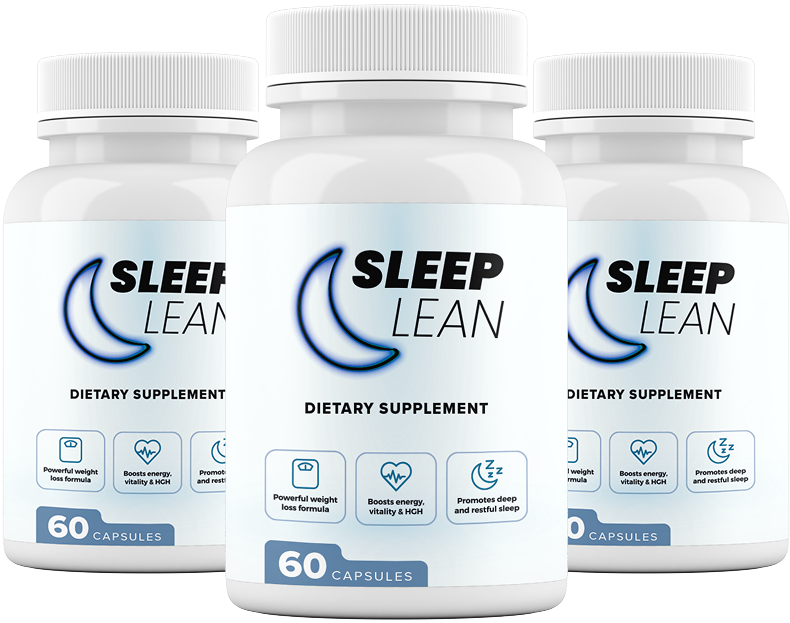

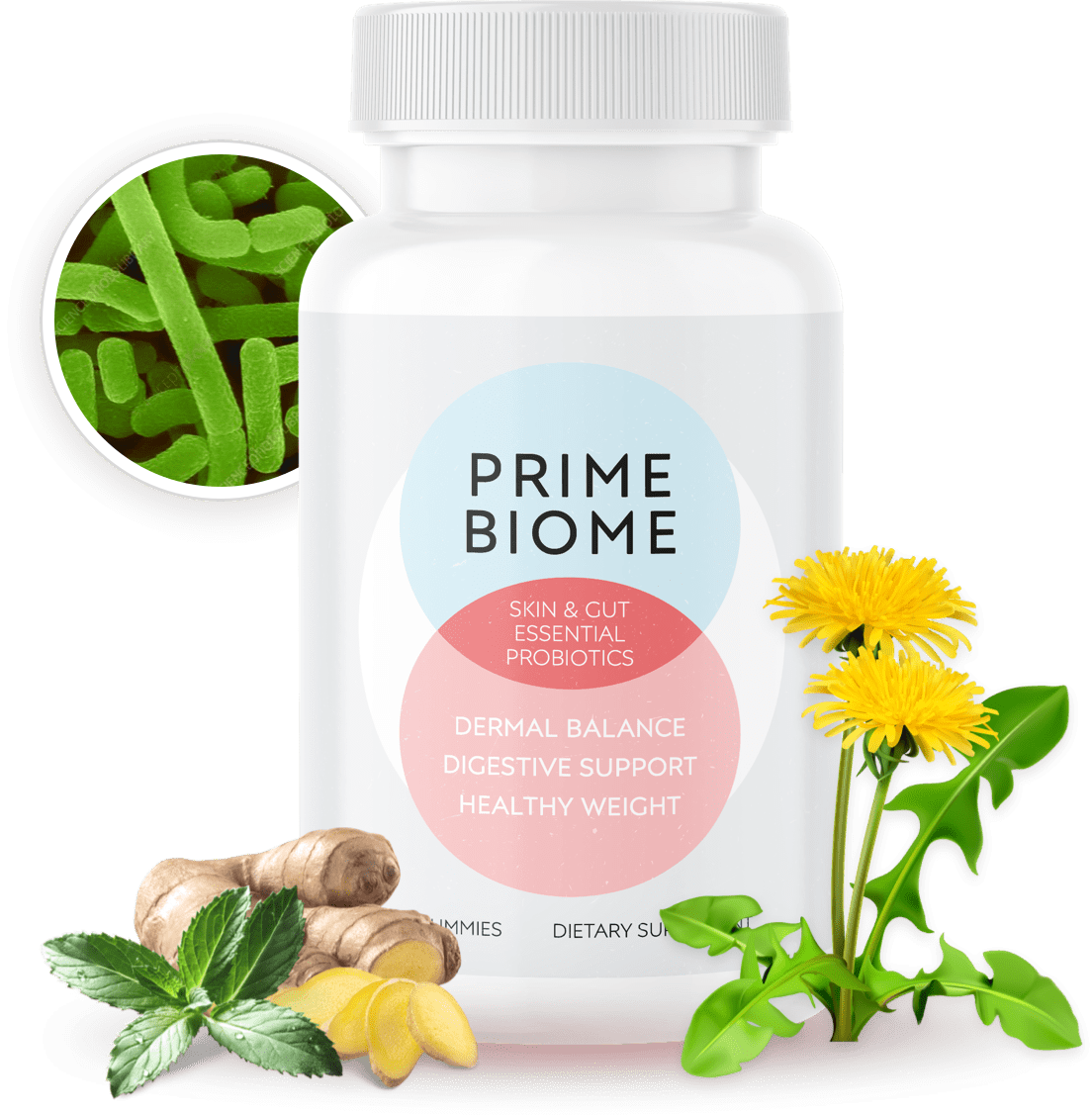


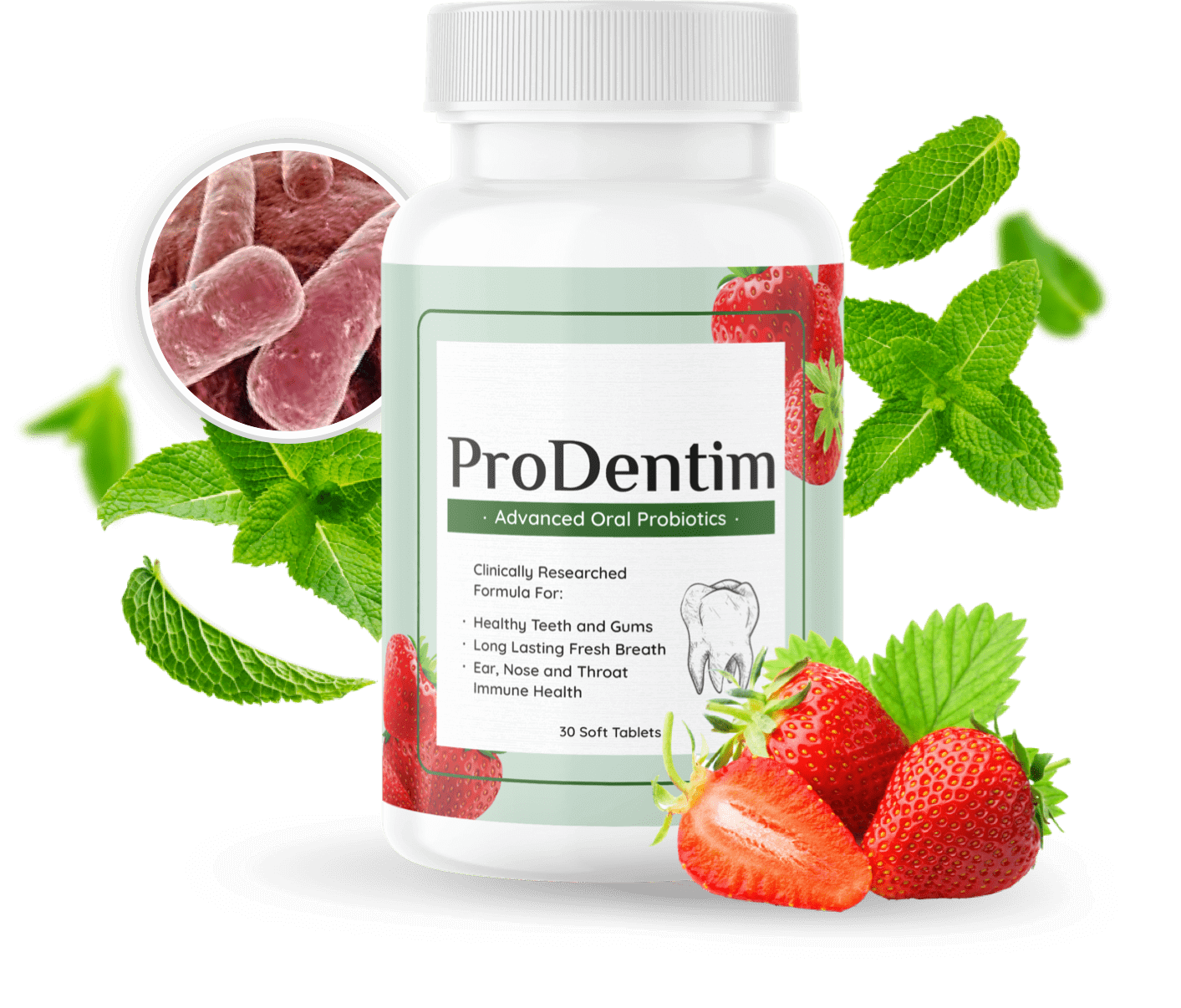

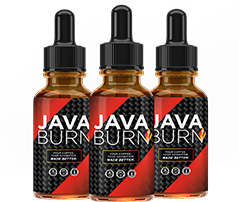

What do you think?
Show comments / Leave a comment